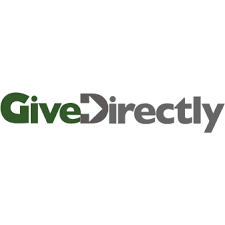 Here’s a radical thesis about the best way to eliminate poverty:
Here’s a radical thesis about the best way to eliminate poverty:
Give money. Don’t give stuff. Also, don’t give conditional money, either, expecting the recipient to do something you want them to do.
I’m intrigued by an international charity called GiveDirectly which puts this radical thesis to the test. I understand this “just money, no stuff, no strings attached” approach runs contrary to our most cherished charitable instincts. It also goes against our typical “Don’t give a man a fish, teach a man to fish” plans, delightful as that cliché may be.
International groups addressing poverty usually focus on building infrastructure capacity in poor areas – stuff like digging wells for clean water, or building housing. Other groups might provide a family with a goat, enroll a girl in school, or teach sustainable farming techniques. These are all super-nice, well-intentioned plans. One teensy problem, however, is that international development like this might not really work very well for eradicating poverty.
I named “give only cash, no strings” above just a “thesis,” because I don’t actually know if it’s better than traditional poverty-relief or traditional development projects. But a series of well-conceived experiments are going on right now to test the thesis. And they are on the cusp of launching an even bigger test.
A group of economists who believe in the thesis of “cash only, no strings” founded GiveDirectly, an organization that I think of as a radical critique of both traditional development organizations and traditional poverty-reduction schemes. Here’s what they do: They just give cash, unconditionally, to poor adults in Africa. Right now they mostly operate in Kenya and Uganda, but are also expanding into Rwanda.
 GiveDirectly doesn’t demand recipients raise a specific protein-rich crop, get sober, or build a type of fuel-efficient oven out of local mud.
GiveDirectly doesn’t demand recipients raise a specific protein-rich crop, get sober, or build a type of fuel-efficient oven out of local mud.
They simply transfer money to households in extreme poverty, accessible through a mobile payments system. And then they let the poor recipients themselves figure out what they need. In that way it’s the simplest poverty-eradication plan imaginable.
Governments around the world have experimented – even before GiveDirectly – with programs like this, known in policy wonk circles as “unconditional cash transfers.”
Unlike most development or poverty-relief charities, however, GiveDirectly measures the results of their programs using the gold standard of data analysis, a series of randomized control trials. That means picking cash recipients randomly selected according to a set of criteria (poverty being one criteria, obviously) and then comparing their outcomes with people under the same conditions who did not receive the cash. Then they try to improve their program design, based on the evidence.
Max Chapnick, Communications Director for GiveDirectly, told me that last year they raised and earmarked close to $45 million for direct cash transfers. That’s not as big as legacy international development organizations like Save The Children or Oxfam or international governmental aid, but it ain’t chicken feed either.
If radical disruption of an industry, evidence-based practices, randomized-control trials and continuous design improvement all sounds very “Silicon Valley” to you (it does to me) then you will not be surprised to learn that Facebook co-founder Dustin Moscovitz, and Google.org are early and aggressive backers of GiveDirectly.
Objections to Cash
It’s very easy to list objections to this program.
Let’s start with: What if poor people quickly spend their unearned money on vices?
And that’s where data can be very interesting for testing that risk, and for testing the original thesis itself.
A research paper published in April 2016, based on cash transfer payments made by GiveDirectly from 2011 to 2013, found no increase in alcohol and tobacco consumption among recipients.
Not only that, but other research on unconditional cash transfers suggests this fear about cash transfers may be overblown. A December 2016 study from the University of Chicago of 19 cash transfer programs worldwide also found no increase in alcohol or tobacco use among recipients.
 Or another big objection: What if “free money” discourages people from working?
Or another big objection: What if “free money” discourages people from working?
An MIT study from 2015 of 7 randomized controlled trials found no evidence that cash transfers discouraged work.
You can choose to believe these researchers, or your own lying eyes.
GiveDirectly’s next experiment, for which they’ve targeted a $30 million fundraising campaign, will be their biggest cash transfer program yet.
They have $23 million raised so far, but if they reach their $30 million goal, their next experiment will be in something known as Universal Basic Income (which wonks call UBI), which is closely related – but distinct from – unconditional cash transfers.
With their new plan, GiveDirectly will transfer cash to Kenyan households in three different ways, to compare the effects on poverty:
- 12 years of 75 cents per day (in US Dollars) to every adult in 40 villages, paid monthly,
- 2 years of 75 cents per day to every adult in 80 villages, paid monthly; and
- 2 years’ worth of 75 cents per day to every adult in 80 villages but paid in a single lump sum.
Researchers will compare effects on the health, well-being, poverty, education, stress and local economy of households and villages between these groups, as well as compare results to a control group of 100 villages that does not receive payments.
This program is “Universal” because every adult in a chosen village will receive income. GiveDirectly chose 75 cents per day because it approximates the poverty level in Kenya, and therefore is “Basic.” With their 2-year and 12-year commitment to incomes, they will have a way to measure both short-term and long-term effects of the Universal Basic Income theory on poverty.
I know this all may sound a bit kooky and maybe too radical and hard to take. It goes against our charitable instincts. We naturally want to bequeath tangible goods instead of free money, and we want to control and improve the poor recipient’s behavior. But what if that approach – and a few centuries of failed development work – is totally wrong? Every 10 year-old knows the coffee-mug wisdom: “instead of giving a man a fish, you should teach a man to fish.” What if we learned that all wrong?
As one of the co-founders of GiveDirectly, Paul Niehaus, cleverly tweeted recently: “The implicit hubris in ‘teach a man to fish’ is that we’re great at fishing lessons. We’re not.”
A version of this ran in the San Antonio Express News and Houston Chronicle.
Post read (385) times.





4 Replies to “Cash Rather Than Good Intentions”
This reminds me of an incident I witnessed a few years back. I live in South Africa and before the Soccer World Cup in 2010 the government decided to pay the full two or three months state pensions in advance to ensure the pensioners weren’t blocking all the ATMs when the tourists arrived.
On the day it was paid I walked past a fast food place which was usually quiet but now packed with old folk from the nearby informal settlement who I imagined thought they would treat themselves having possibly not seen that much money in a while. Their lives are definitely tough so I couldn’t blame them for wanting a bit of a treat, but I also couldn’t help wondering what might happen to those who don’t budget effectively and end up with a month where they have no means of buying essentials. Especially considering our state pension nowadays is R1,500 (about $111 at today’s rate) which is hardly enough for one person to survive, let alone the other family members who often rely on these grants.
I guess what I am getting at is that giving a person money to do with it as they wish is all well and good, but if we don’t look at solving the causes of poverty, (education being a huge contributing factor) then we are just treating the symptoms.
>12 years of 75 cents per day (in US Dollars) to every adult in 40 villages, paid monthly,
From village to metropolis in under 12 years might be a spin off project.
I still like it. It’s a great idea